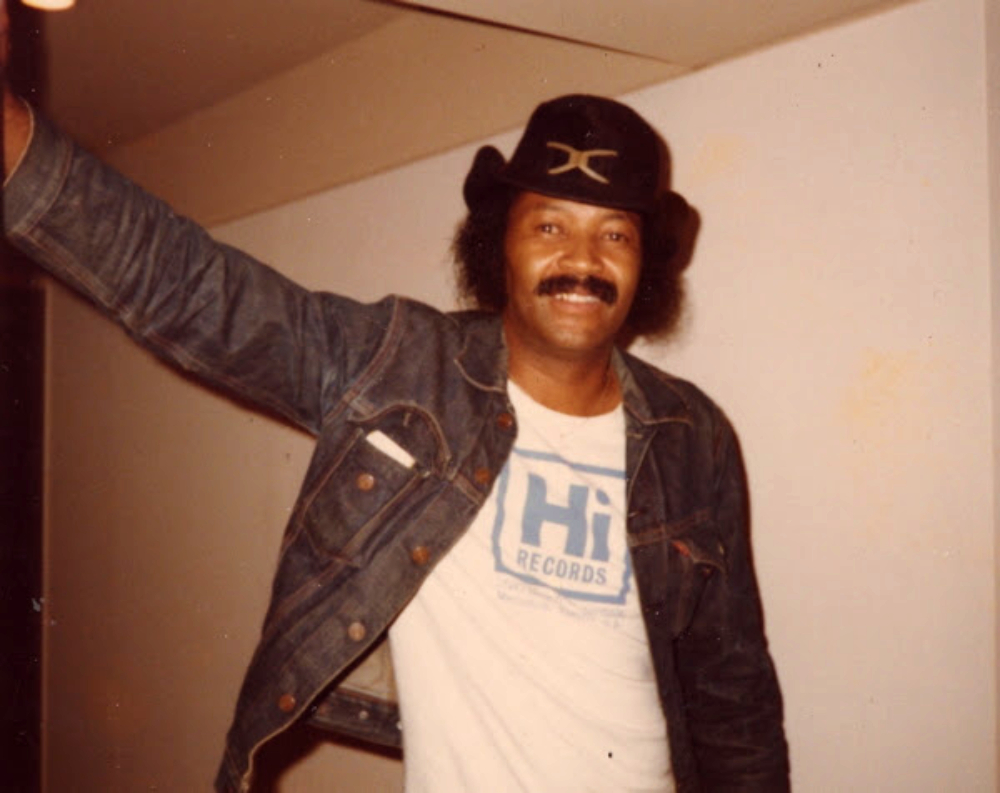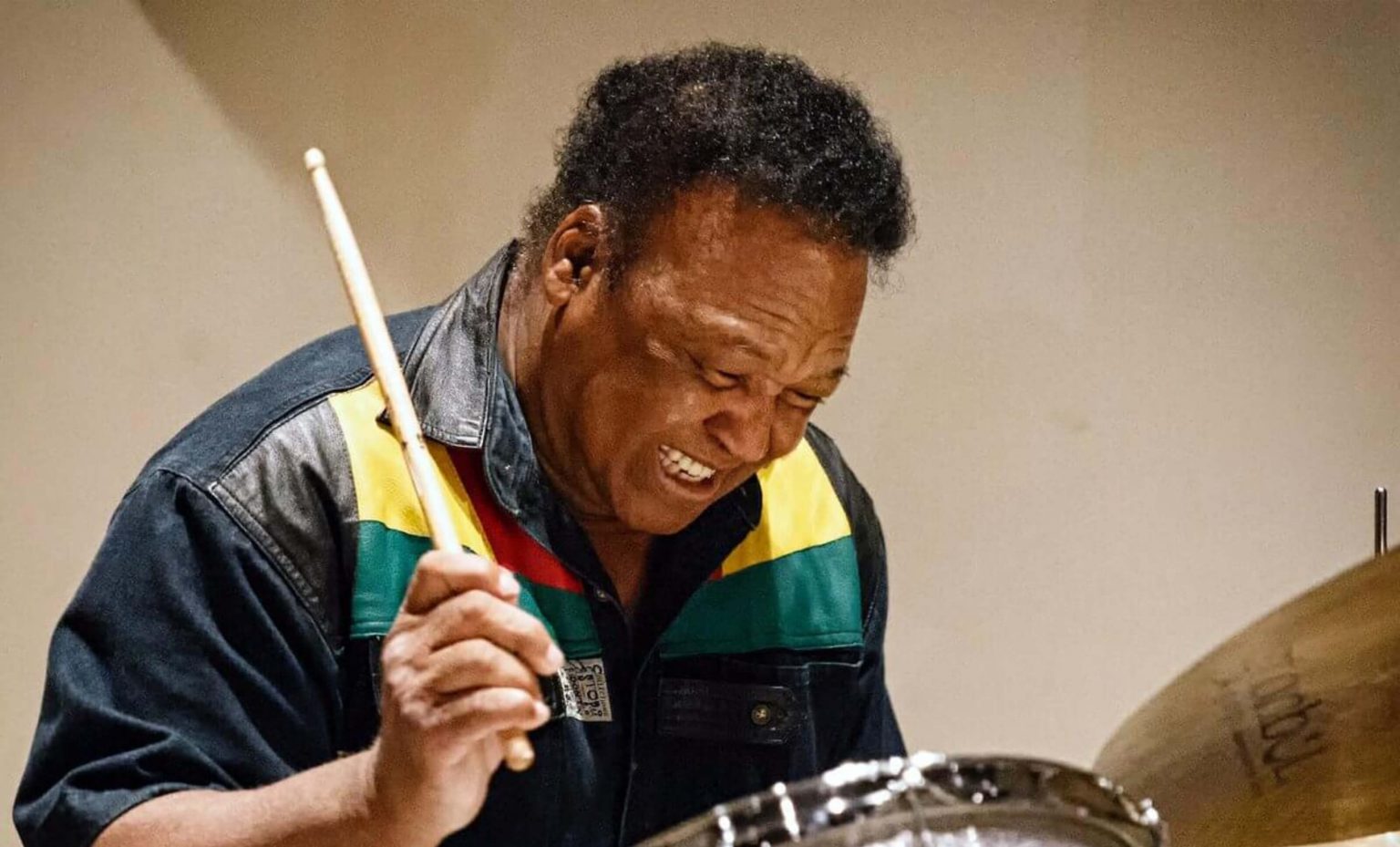Legendary Memphis drummer Howard Grimes died on Saturday, February 12th, of kidney failure at Saint Francis Hospital in Memphis. His death was confirmed by his Bo-Keys bandmate, Scott Bomar.

Born at home in Memphis on August 22nd, 1941, Grimes’ mother was only 16, and he never knew his father. The neighborhood where he grew up, New Chicago in North Memphis had dirt roads, but folks gathered in the parks on weekends, unafraid. His masonic grandfather, and a man named Leroy Grimes who gave Howard his name had a lot to do with his early upbringing, as did his Aunties who watched over him since birth.
Grimes’ uncle Chris had a cafe in the neighborhood, just down the street from Fat Man’s Cafe where BB King and Bobby “Blue” Bland would come to play. A bit further down was a club owned by Mr. Eli where Big Joe Turner, Little Richard and Ray Charles would hold musical court. Music was everywhere, and that music was the blues.
Howard first heard the rhythm from a local high school band drumline, then later in the Antioch Missionary Baptist Church where the sound of people rocking their feet blended with the organ. It wasn’t long before his cousin’s boyfriend, who drove a taxi during the day and played drums on Beale Street at night, was teaching him the beat. Grimes joined a local drum and bugle corps, and later learned more from the Manassas band director, Mr. Able.
His cousins would sneak young Howard into the local clubs so he could watch the drummers. He absorbed everything he saw and heard like a sponge, but always keeping Mr. Able’s instruction, “no showing off, keep it tight,” in his mind. He played his first gig at the Rivermont Club, which his uncle managed, at age 12.
Howard went to high school with Isaac Hayes, who introduced him to Jim Stewart, founder of Satellite Records, which would later become Stax. The first track he recorded there was the hit song “Cause I Love You,” by Rufus and Carla Thomas with Booker T. Jones on baritone sax. That was the beginning of a career that lasted the rest of his life, and put Howard Grimes in the mix with the biggest names in blues and soul.
The laundry list of soul/blues luminaries for whom Grimes played reads like a Who’s Who of Memphis celebrities. Rufus Thomas, Carla Thomas, William Bell, Marvin Gaye, Bo Diddley, Willie Mitchell, Ann Peebles, Al Green, Syl Johnson, Denise LaSalle, Otis Clay, Slim Harpo, Robert Cray, and Grimes’ personal favorite, O.V. Wright, are just a handful of folks for whom Howard laid down beats that were so tight, and so in-the-pocket, that Mitchell gave him the nickname “Bulldog,” because he would just clamp down on it.
In his 2021 autobiography, Timekeeper – My Life in Rhythm, Grimes tells the story of being the first black artist ever to perform at the coliseum in Montgomery, Alabama while on tour with Paul Revere and the Raiders; much to the chagrin of then Governor George Wallace. There were corrupt label practices that left him broke and living with his mother even while playing on million-selling records. There was the night when he was hit on by Faye Dunaway after playing a gig at the Troubador, and the near-fatal accident that left Grimes OK, but rumors of his, and the band’s deaths beat them back to Memphis. He was in the studio recording with Al Green when they received the news that Dr. Martin Luther King, Jr. had been assassinated just blocks away.
On July 21st of last year, Grimes was honored at the Stax Museum to celebrate his autobiography, and his life. Museum Executive Director Jeff Kollath said, “He is such an instrumental part of the history, not just of this place, not just of Royal Studios… but Memphis music in general,” before presenting Howard with a mayoral proclamation declaring July 21, 2021, as Howard Lee Grimes Day in Memphis and Shelby County.
Some of his most memorable appearances include “A Nickel and a Nail and Ace of Spades,” with O.V. Wright; “Let’s Stay Together,” with Al Green; “Part Time Love,” with Anne Peebles; “Diamond in the Rough,” with Syl Johnson; “Hope You Love Me like You Say You Do,” with Otis Clay; “Trapped By a Thing Called Love,” with Denise LaSalle; and Cyndi Lauper’s 2010 smash hit album, Memphis Blues.
Howard Grimes was the literal back-beat of Memphis, if not the city’s backbone. His music touched the lives of millions. Howard probably said it best:
My beat is the backbone of the Memphis sound. The rhythm of this city runs through my heart. I’m connected to the music in this city. The old masters I played with, that I came up under, they told me to listen to them, to tell what’s happened and remember. They told me to tell the truth for them after they’ve gone.
*Feature image: Michael Kerr


